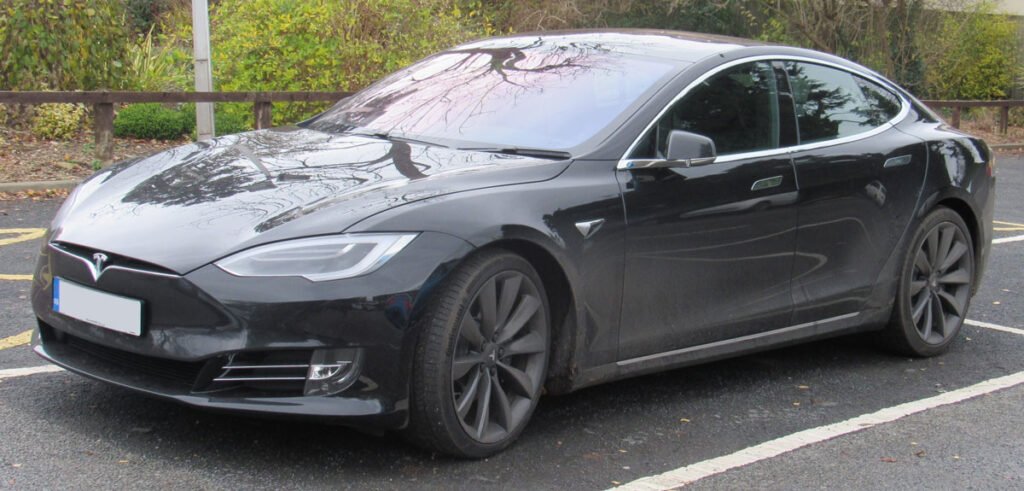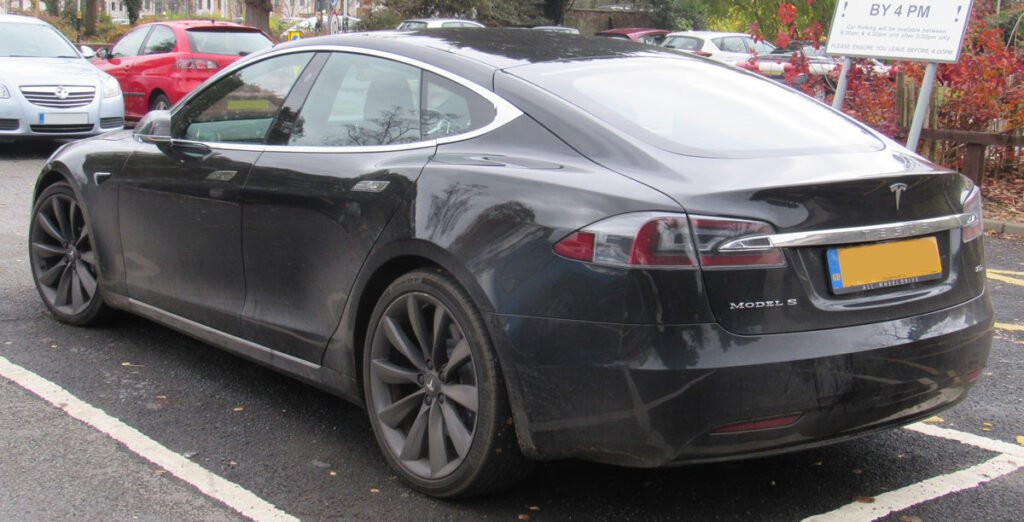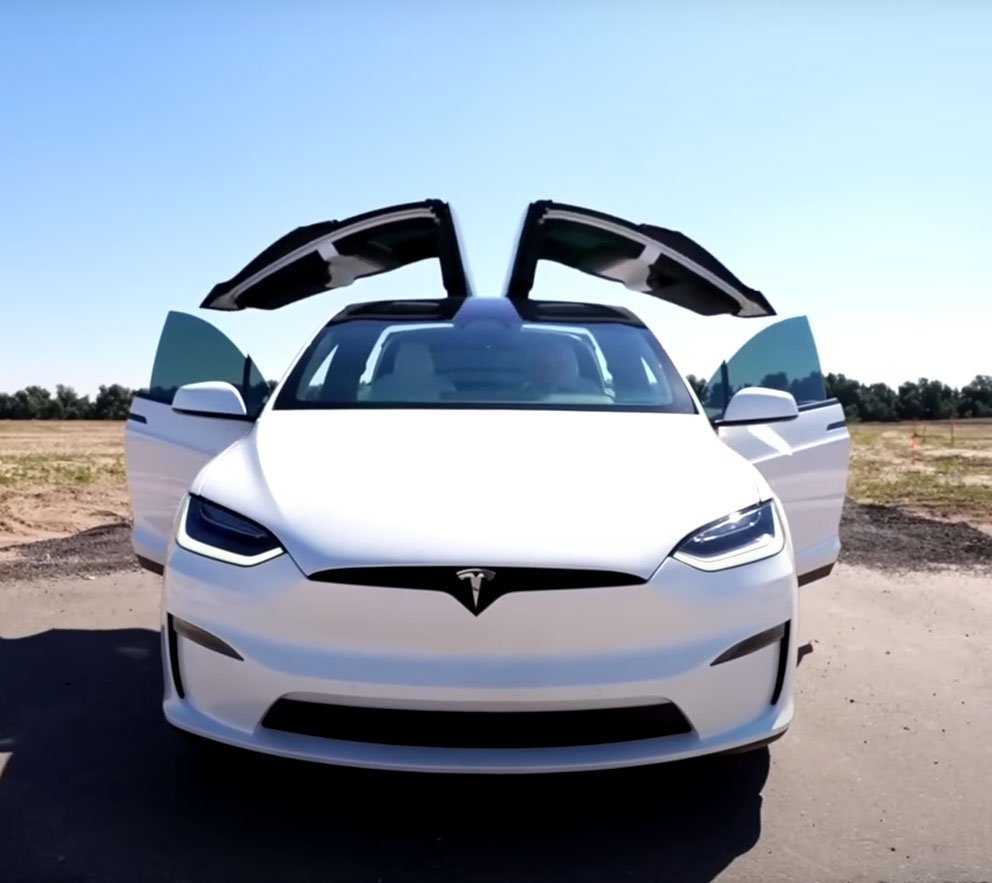In recent years, Tesla has emerged as a pioneer in the electric vehicle (EV) industry, reshaping the way people perceive and interact with sustainable transportation. With its groundbreaking innovations, Tesla has managed to captivate the world with its S3XY electric vehicle lineup – comprising the Model S, Model 3, Model X, and Model Y. Let’s delve into each of these vehicles and explore how they have redefined the electric automotive landscape.
Model S: Electrifying Luxury Redefined


| Variant | Model S | Model S Plaid |
| Range (EPA est.) | 405 miles (651 km) | 396 miles (637 km) |
| Real World Range | 520 – 570 Km | 500 – 550 Km |
| Acceleration (0-60 mph) | 3.1 sec (with 1-foot rollout) | 1.99 sec (with 1-foot rollout) |
| Battery Capacity | 95 kWh | 95 kWh |
| Power | 670 HP & 966 NM | 1020 HP & 1423 NM |
| Charging | Supports 250 kW Fast charging | Supports 250 kW Fast charging |
| Displays (Touchscreen) | 17″ Center Touchscreen | 17″ Center Touchscreen |
| Wheels Size | 19″ or 21″ | 19″ or 21″ |
| Drag Coeffecinet | 0.208 Cd | 0.208 Cd |
The Tesla Model S is the car that put Tesla on the map. Introduced in 2012, it remains the company’s flagship luxury electric sedan. The Model S stands out for its sleek, minimalist design and impressive performance. Available in multiple configurations, it offers varying ranges and acceleration capabilities.
One of the key factors that set the Model S apart is its extended driving range. With its advanced battery technology, the Model S boasts a long-range capability, making long-distance trips a breeze. Additionally, the Model S has gained recognition for its “Ludicrous Mode,” allowing it to accelerate from 0 to 60 mph in a mind-boggling few seconds.
Model 3: Accelerating Mass Adoption


| Variant | Performance AWD | Long Range AWD | RWD |
| Range (EPA est.) | 315 miles (506 km) | 333 miles (536 km) | 272 miles (438 km) |
| Real World Range | 400 – 450 Km | 430 – 480 Km | 370 – 400 km |
| Acceleration (0-60 mph) | 3.1 sec (with 1-foot rollout) | 4.2 sec | 5.8 |
| Battery Capacity | 75 KWh | 75 KWh | 57.5 kWh |
| Power | 527 HP & 660 Nm | 491 HP & 493 Nm | 279 HP & 420 Nm |
| Charging | Supports 250 kW Fast charging | Supports 250 kW Fast charging | Supports 170 kW Fast charging |
| Displays (Touchscreen) | 15″ Center Touchscreen | 15″ Center Touchscreen | 15″ Center Touchscreen |
| Wheels Size | 20″ | 18″ or 19″ | 18″ or 19″ |
The Tesla Model 3, unveiled in 2016, is often regarded as the vehicle that brought Tesla’s vision of sustainable transport to the masses. As a more affordable alternative to the luxurious Model S, the Model 3 aimed to make electric driving accessible to a broader audience without compromising on performance or range.
Featuring a sleek and contemporary design, the Model 3 delivers impressive performance, rapid acceleration, and an impressive electric range. Its user-friendly interface and cutting-edge Autopilot technology have made it a favourite among EV enthusiasts.
Model X: Electrifying Utility with Innovation



| Variant | Model X | Model X Plaid |
| Range (EPA est.) | 348 miles (560 km) | 333 miles (535 km) |
| Real World Range | 520 – 570 Km | 420 – 460 Km |
| Acceleration (0-60 mph) | 3.8 sec | 2.5 sec (with 1-foot rollout) |
| Battery Capacity | 95 kWh | 95 kWh |
| Power | 670 HP & 966 NM | 1020 HP & 1423 NM |
| Charging | Supports 250 kW Fast charging | Supports 250 kW Fast charging |
| Displays (Touchscreen) | 17″ Center Touchscreen | 17″ Center Touchscreen |
| Wheels Size | 20″ or 22″ | 20″ or 22″ |
| Drag Coeffecinet | 0.24 Cd | 0.24 Cd |
The Tesla Model X represents Tesla’s foray into the world of electric SUVs. Introduced in 2015, the Model X redefines the concept of an all-electric family vehicle. Notably, the Model X stands out with its futuristic falcon-wing doors, providing easy access to the rear seats even in tight parking spaces.
With its dual-motor all-wheel-drive system, the Model X offers remarkable traction and performance. It delivers the convenience and versatility of an SUV while boasting the environmental benefits of electric driving.
Model Y: Bridging the Gap


| Variant | Performance AWD | Long Range AWD | AWD |
| Range (EPA est.) | 303 miles (487 km) | 330 miles (531 km) | 279 miles (449 km) |
| Real World Range | 380 – 420 km | 400 – 450 km | 320 – 350 km |
| Acceleration (0-60 mph) | 3.5 sec (with 1-foot rollout) | 4.8 sec | 5.0 sec |
| Battery Capacity | 75 KWh | 75 KWh | 57.5 kWh |
| Power | 527 Hp 660 Nm | 507 Hp 493 Nm | 295 Hp 420 Nm |
| Charging | Supports 250 kW Fast charging | Supports 250 kW Fast charging | Supports 170 kW Fast charging |
| Displays (Touchscreen) | 15″ Center Touchscreen | 15″ Center Touchscreen | 15″ Center Touchscreen |
| Wheels Size | 21″ | 19″ or 20″ | 19″ or 20″ |
Introduced in 2020, the Tesla Model Y serves as a bridge between the Model 3 sedan and the larger Model X SUV. The Model Y is a compact SUV that shares its platform with the Model 3, enabling cost and production efficiencies.
The Model Y provides a compelling blend of practicality, performance, and electric range. With its spacious interior and optional third-row seating, it caters to families and adventure-seekers alike. Its hatchback design and ample storage space make it a versatile choice for various lifestyles.
The reason behind Tesla’s naming
Tesla has a unique and deliberate naming convention for their vehicles. The naming strategy is primarily centred around creating a catchy and memorable electric vehicle lineup while also conveying a broader message about their vision for sustainable transportation. Here’s a breakdown of Tesla’s naming convention:
- Model S: This was Tesla’s first luxury all-electric sedan, and the “S” stands for “Sedan.” This was Tesla’s initial entry into the mass market, and the Model S was designed to showcase the capabilities and potential of electric vehicles in the luxury segment.
- Model 3: It was intended to be Tesla’s affordable, mass-market electric vehicle, and the “3” represents its positioning as the third vehicle in the Tesla lineup after the Roadster and Model S. Tesla initially wanted to name it the “Model E” to complete the word “SEXY” with the Model S and Model X, but Ford had already trademarked the “Model E” name, so Tesla opted for “Model 3” instead.
- Model X: It is Tesla’s all-electric SUV, and the “X” indicates that it has all-wheel drive, as “X” is often used to symbolize a cross or a multiplication of elements.
- Model Y: It is closely related to the Model 3 platform and was designed to be a more practical and affordable compact SUV. The “Y” in its name likely represents the word “Why” as in “Why not have a small SUV that complements the Model 3 sedan?”
By following this naming convention, Tesla created the playful “S3XY” electric vehicle lineup, which garnered attention and media coverage. The naming also aligns with Tesla’s mission to make sustainable transportation attractive and desirable to a wider audience, combining performance and innovation with a focus on environmental friendliness. Overall, the names help reinforce Tesla’s brand identity and vision for the future of electric mobility.
Tesla’s Charging Infrastructure
Beyond the impressive features of the S3XY lineup, Tesla has also been instrumental in building a robust charging infrastructure. Tesla’s Supercharger network spans numerous countries to be exact it is 40000+ charging stating across the world, facilitating long-distance travel and eliminating range anxiety for Tesla owners.
Conclusion
The S3XY electric vehicle lineup of Tesla has revolutionized the automotive industry, offering a compelling combination of performance, range, and sustainability. From the luxury-focused Model S to the mass-market Model 3, and from the innovative Model X to the versatile Model Y, Tesla’s vehicles cater to a wide range of consumers with different needs and preferences.
As Tesla continues to push the boundaries of electric mobility, their ongoing commitment to innovation and sustainable transportation will undoubtedly shape the future of the automotive industry. With an ever-expanding product lineup and a growing global presence, Tesla’s impact on the world of electric vehicles is undeniable.


